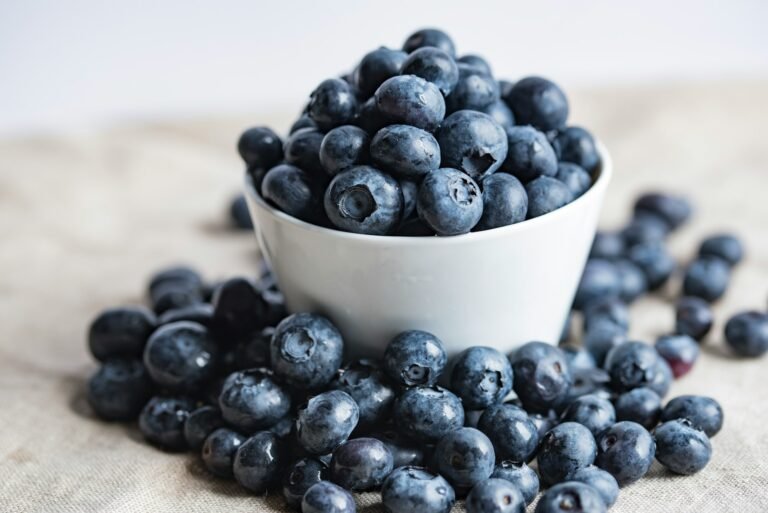How to Use Nutrition for Healthy Aging
You have the power to enhance your well-being as you age, and it all starts with what you eat. In this post, I’ll share my favorite tips and tricks for using nutrition to support a vibrant, healthy lifestyle as the years go by. Together, we’ll explore easy-to-follow strategies for incorporating vital nutrients and balanced meals into your daily routine. Ready to embrace healthy aging? Let’s dive in!
Key Takeaways:
- Prioritize a balanced diet rich in fruits, vegetables, whole grains, lean proteins, and healthy fats to support overall health.
- Stay hydrated by drinking plenty of water throughout the day to maintain proper bodily functions and cognitive health.
- Incorporate foods high in antioxidants and anti-inflammatory properties to combat age-related diseases and promote longevity.
- Limit processed foods, added sugars, and high sodium intake to reduce the risk of chronic health issues.
- Consider portion control and mindful eating practices to maintain a healthy weight and improve digestion.
The Impact of Nutrition on Aging: Myths vs. Reality
Dissecting Common Misconceptions
Many misconceptions about nutrition and aging circulate widely, leading to confusion around what to eat for optimal health as we grow older. For instance, a common myth suggests that all carbohydrates should be avoided once you reach a certain age because they contribute to weight gain. Reality, however, is more nuanced. Whole grains and fruits can provide imperative energy, fiber, and a host of vitamins and minerals necessary for maintaining strength and stamina. Shifting focus from elimination to balance helps ensure that you are fueling your body properly while keeping an eye on portion sizes and overall dietary diversity.
Another myth states that the aging process inherently leads to a lower appetite, causing individuals to eat less, which could exacerbate nutritional deficiencies. While some older adults experience changes in appetite or may struggle with taste and smell, many find that their nutrient needs shift rather than diminish. Programs focusing on nutrient-dense foods—rich in vitamins, minerals, and other imperative compounds—can provide the necessary fuel even if appetite decreases. This understanding encourages a more tailored approach to eating, showcasing that energy needs may not be drastically different as one ages.
The Science of Nutrients and Aging
The relationship between nutrition and aging is supported by robust scientific research highlighting how specific nutrients play vital roles in longevity and overall health. For instance, antioxidants like vitamins C and E, along with polyphenols found in colorful fruits and vegetables, combat oxidative stress—a major factor in cellular aging. Omega-3 fatty acids, commonly found in fatty fish, have been linked to improved cognitive function and reduced inflammation, substantiating their importance in an elderly diet. Incorporating these nutrients into daily meals can make a remarkable difference in how our bodies cope with aging.
Moreover, studies have shown that diets rich in fiber can aid digestive health and reduce the risk of chronic diseases, such as heart disease and diabetes. A diet abundant in whole foods—such as legumes, grains, nuts, and seeds—not only provides imperative nutrients but may also influence mood and mental well-being. It’s fascinating how food choices intertwine with our bodily functions and how they can actively contribute to healthy aging. As you navigate your dietary preferences, think about how each nutrient you consume can support your long-term health, making aging a more straightforward and positive journey.
Building a Nutritional Foundation for Longevity
A solid nutritional foundation plays a significant role in promoting longevity and ensuring a vital quality of life as we age. By embracing a diet that emphasizes whole, nutrient-dense foods, you empower your body with the resources it needs to thrive. This foundation not only helps in disease prevention but also enhances cognitive function and overall vitality. Acknowledging the role of both crucial nutrients and balanced macronutrients allows us to craft meals that nourish every aspect of our bodies. As I navigate through my aging journey, I’ve discovered that maintaining a varied and colorful plate can make a genuine difference in how I feel day-to-day.
Essential Nutrients for Aging Gracefully
Several key nutrients have been shown to support graceful aging, including omega-3 fatty acids, antioxidants, and calcium. Omega-3s, found abundantly in fatty fish and flaxseeds, contribute to heart health and cognitive function, reducing the risk of age-related diseases such as Alzheimer’s. Antioxidants like vitamins C and E combat oxidative stress, which can accelerate aging at the cellular level. Foods rich in these vital compounds—such as berries, nuts, and leafy greens—should be staples in your diet. I often make smoothies packed with spinach and berries, aiming not just for deliciousness but for all the protective benefits these ingredients offer.
Understanding Micro vs. Macro Nutrients
The discussion of nutrients extends into two primary categories: macronutrients and micronutrients. Macronutrients—proteins, fats, and carbohydrates—are required in larger amounts and provide the energy necessary for daily functioning. They play critical roles in muscle maintenance, hormone regulation, and overall metabolic health. On the flip side, micronutrients such as vitamins and minerals are needed in smaller quantities, yet their impact is profound in supporting immune function, bone health, and cellular repair. My approach often includes balancing these two groups throughout my day to create a meal plan that keeps energy levels stable while providing crucial support.
Diving deeper into micromolecular and macromolecular balances can be quite enlightening. Each macronutrient serves distinct roles in our diet, with proteins serving to build and repair body tissues, carbohydrates acting as our primary energy source, and healthy fats supporting cellular health and hormone production. The intricacies of micronutrients, encompassing vitamins and minerals like vitamin D and magnesium, reveal their staggering influence on processes ranging from bone health to emotional well-being. By being mindful of both these categories, I’ve tailored my meals to ensure I am not just filling my plate, but genuinely nourishing my body for the years to come.
Meal Planning Strategies for Optimal Health
Creating a Balanced Plate: The Ideal Nutrition Formula
When I think about creating a balanced plate, I visualize a vibrant assembly of foods that not only tantalize my taste buds but also nourish my body. The key to achieving this is to divide my plate into sections. Half of the plate should be filled with colorful vegetables and fruits, providing me with important vitamins and minerals. The other half should include a combination of whole grains and lean proteins, ensuring I meet my daily nutrient needs. For example, pairing quinoa with roasted vegetables and grilled chicken gives me a delicious and satisfying meal that keeps my energy levels stable throughout the day.
Including healthy fats is another vital component of my balanced plate. I often incorporate a drizzle of olive oil or a sprinkle of nuts to enhance the flavor and health benefits of my meals. By opting for nutrient-dense foods that are rich in fiber, like legumes or whole grain bread, I’m also able to maintain my digestive health, which is key as I age. Balancing macronutrients reduces cravings and helps maintain a healthy weight, which is important for longevity.
Practical Tips for Shopping and Preparing Meals
Planning my meals in advance and making a shopping list has made a world of difference in my approach to nutrition. I start every week by checking the pantry and fridge for ingredients that need to be used up, then I create a simple menu. This not only minimizes food waste but also saves me time and ensures I have healthy options readily available. I focus on buying fresh, seasonal produce because it tends to be more flavorful and nutrient-rich. In the past, I’ve made the mistake of not having the right items on hand, leading me to choose less healthy convenience options. This grocery habit has empowered me to set up my week for success.
- Keep a running list of favorite healthy recipes to refer to during meal planning.
- Shop on a full stomach to avoid impulse buys of unhealthy items.
- Invest in a good set of meal prep containers for easy storage and portioning.
- Consider trying a new vegetable or grain each week to add variety to your diet.
- The effort placed into shopping and meal prep clearly pays off in long-term health benefits.
Convenience is another key aspect of meal preparation that often slips my mind, yet it can significantly influence my eating habits. Prepping ingredients in bulk, like cooking a large batch of brown rice or chopping vegetables, saves me time during busy weekdays. I often allocate a few hours on Sundays for this purpose, which allows me to mix and match during the week without feeling overwhelmed. Having pre-portioned snacks, like cut-up veggies with hummus or whole grain wraps, makes it so much easier to reach for a healthy choice instead of reaching for something less nutritious. The inclusion of these practical strategies into my weekly routine has overwhelmingly benefited my overall nutrition.
- Set aside dedicated time each week for meal prep to simplify the cooking process.
- Utilize kitchen tools like slow cookers or air fryers to ease the cooking process.
- Incorporate batch cooking for staples like soups or stews that can be frozen for later use.
- Keep healthy snacks visible and ready to grab, reducing the temptation of unhealthier choices.
- The changes I’ve made to my shopping and cooking habits have profoundly impacted my health and vitality as I age.
The Role of Hydration in Healthy Aging
The Unseen Benefits of Staying Hydrated
Staying hydrated offers numerous benefits that often fly under the radar as we age. As our bodies lose water content, we may experience a decline in cognitive function, mood stability, and even our skin’s elasticity. Personally, I’ve noticed that a glass of water can work wonders on my mental clarity; a simple sip often brings my focus back. Moreover, hydration plays a vital role in digestion, nutrient absorption, and maintaining joint health, making it an vital factor in our overall well-being. Research shows that even mild dehydration can lead to fatigue and headaches, both of which I’ve experienced after a day without adequate fluid intake.
Moreover, the effects of hydration extend beyond mere physical health—staying well-hydrated can significantly impact your energy levels and mood. You might have heard that around 60% of our body is made up of water, and this percentage directly influences how well our organs function. For instance, my energy levels noticeably dip when I don’t drink enough water, impacting everything from daily tasks to my exercise routine. Embracing the benefits of hydration can be a game-changer for sustaining physical activity and fostering emotional well-being as I navigate the intricacies of aging.
Simple Practices to Boost Daily Water Intake
Incorporating more water into your daily routine doesn’t have to be daunting. I’ve found that setting goals, like drinking a glass of water with each meal or keeping a reusable water bottle by your side throughout the day, can make a considerable difference. You might want to consider infusing your water with fruits like lemon or berries; not only does this enhance the flavor, but it also encourages you to drink more. For those busy days, I keep a hydration tracker on my phone as a reminder to take sips throughout my activities.
Creating simple rituals centered around hydration can transform how you approach your fluids. For example, I’ve integrated drinking a full glass of water first thing in the morning as part of my wake-up routine, which not only hydrates me after a night’s sleep but jumpstarts my metabolism for the day ahead. Herbal teas, broths, and high-water-content foods, such as cucumbers and watermelon, can also contribute to your overall intake. This approach ensures that I’m not just consuming water but also enjoying a variety of flavors and textures that keep my dietary habits dynamic and enjoyable.
Adjusting Nutritional Needs with Aging
Recognizing Changes in Dietary Requirements
As we age, our bodies undergo various physiological changes that naturally influence our nutritional needs. Metabolism tends to slow down, which means I might not require as many calories as I did in my younger years. This decrease in energy requirements often coincides with a need for higher nutrient density, emphasizing the importance of choosing foods that pack a nutritional punch, like leafy greens, lean proteins, and whole grains. Additionally, our senses of taste and smell might diminish, which can impact appetite and food choices. Finding ways to make meals more flavorful and visually appealing becomes vital in maintaining adequate nutrition.
Hydration also plays a significant role as we grow older. Often, I find that I don’t feel thirsty like I used to, which can lead to underestimating how much water I need. Dehydration can lead to serious health issues, from cognitive decline to kidney problems. It’s beneficial to develop a habit of regularly sipping water or consuming high-water-content foods like cucumbers and watermelons to ensure I’m meeting my fluid needs.
Tailoring Your Diet for Chronic Health Conditions
Chronic health conditions like diabetes, heart disease, and osteoarthritis necessitate specific dietary adjustments. For instance, if you’re managing diabetes, it becomes vital to focus on controlling blood sugar levels through balanced meals. Incorporating high-fiber foods such as beans, whole grains, and plenty of vegetables can regulate blood sugar levels while providing vital nutrients. I’ve also found that healthy fats, like those found in avocados and nuts, can promote heart health, which is especially relevant for those of us with cardiovascular concerns.
In my experience, adjusting my diet to align with specific health needs has made a noticeable difference. When I had to manage my cholesterol levels, I looked into substituting saturated fats with healthier options, like olive oil instead of butter. Emphasizing antioxidant-rich foods such as berries and leafy greens has also been beneficial. Tailoring my meals not only addresses health conditions but also enhances overall vitality, so it’s worthwhile to consult with a healthcare provider or nutritionist to develop a personalized dietary plan.
Final Words
From above, I’ve shared some insights on how nutrition plays a vital role in healthy aging. It’s truly fascinating to realize how the foods we choose every day can impact our longevity and overall well-being. I encourage you to take small steps towards healthier eating habits, such as incorporating more fruits, vegetables, whole grains, and lean proteins into your meals. Every positive choice you make can compound over time, leading to better health as we get older. Trust me, when I focus on a balanced diet, I feel much more energized and vibrant.
If you’re looking for more guidance or specific recommendations tailored for older adults, I highly recommend checking out the Nutrition Information for Older Adults. It provides valuable resources to help you navigate the nutritional needs that come with aging. Let’s embrace this journey of healthy aging together by making smarter dietary choices today for a better tomorrow!
FAQ
Q: What role does nutrition play in healthy aging?
A: Nutrition is fundamental to healthy aging as it directly impacts physical health, cognitive function, and emotional well-being. A balanced diet rich in nutrients can help reduce the risk of chronic diseases, maintain muscle mass, and support overall energy levels. Incorporating a varied diet that includes fruits, vegetables, whole grains, lean proteins, and healthy fats is crucial for longevity and vitality.
Q: Which nutrients are particularly important for older adults?
A: Key nutrients for older adults include calcium and vitamin D for bone health, protein for muscle maintenance, and omega-3 fatty acids for heart and brain health. Additionally, antioxidants found in fruits and vegetables can help combat inflammation and oxidative stress. It’s also important to ensure adequate hydration, as thirst perception may decrease with age.
Q: How can I make adjustments to my diet for better aging?
A: To adjust your diet for healthier aging, start by incorporating more whole foods such as fruits, vegetables, whole grains, and lean proteins. Limit processed foods high in sugar and unhealthy fats. Plan meals rich in fiber to support digestive health, and add variety to ensure a broad spectrum of nutrients. Consulting with a nutritionist can also provide personalized recommendations based on individual health needs.
Q: Are there specific diets recommended for seniors?
A: Several diets are beneficial for seniors, including the Mediterranean diet, which emphasizes whole grains, healthy fats, lean proteins, and plenty of fruits and vegetables. The DASH diet, which focuses on reducing sodium and increasing nutrient-dense foods, is also highly recommended for overall health. Both diets have shown positive effects on heart health and cognitive function, making them excellent choices for aging individuals.
Q: How can I maintain a healthy weight while aging?
A: Maintaining a healthy weight while aging involves a combination of balanced nutrition and regular physical activity. Focus on portion control and make healthier choices by prioritizing nutrient-dense foods over empty-calorie snacks. Eating smaller, more frequent meals can help manage hunger levels. Engaging in regular exercise, including strength training and aerobic activity, will also support healthy weight management and overall health.















